Top Continuous Hot Water System Solutions | Cost & Installation Guide
Are you looking for a reliable hot water solution that never runs out? A continuous hot water system heats water only when you need it, offering endless hot water and energy efficiency. This guide will explain how these systems work, their benefits, and important considerations for selecting the right one for your home.
Key Takeaways
-
Continuous hot water systems provide an on-demand supply of hot water, eliminating the need for storage tanks and enhancing energy efficiency.
-
The choice of continuous hot water system should consider household size, water usage patterns, energy preferences, and local regulations for installation.
-
Proper installation and regular maintenance are crucial for maximizing the efficiency and lifespan of continuous hot water systems, with professional assistance recommended for optimal performance.
Understanding Continuous Hot Water Systems
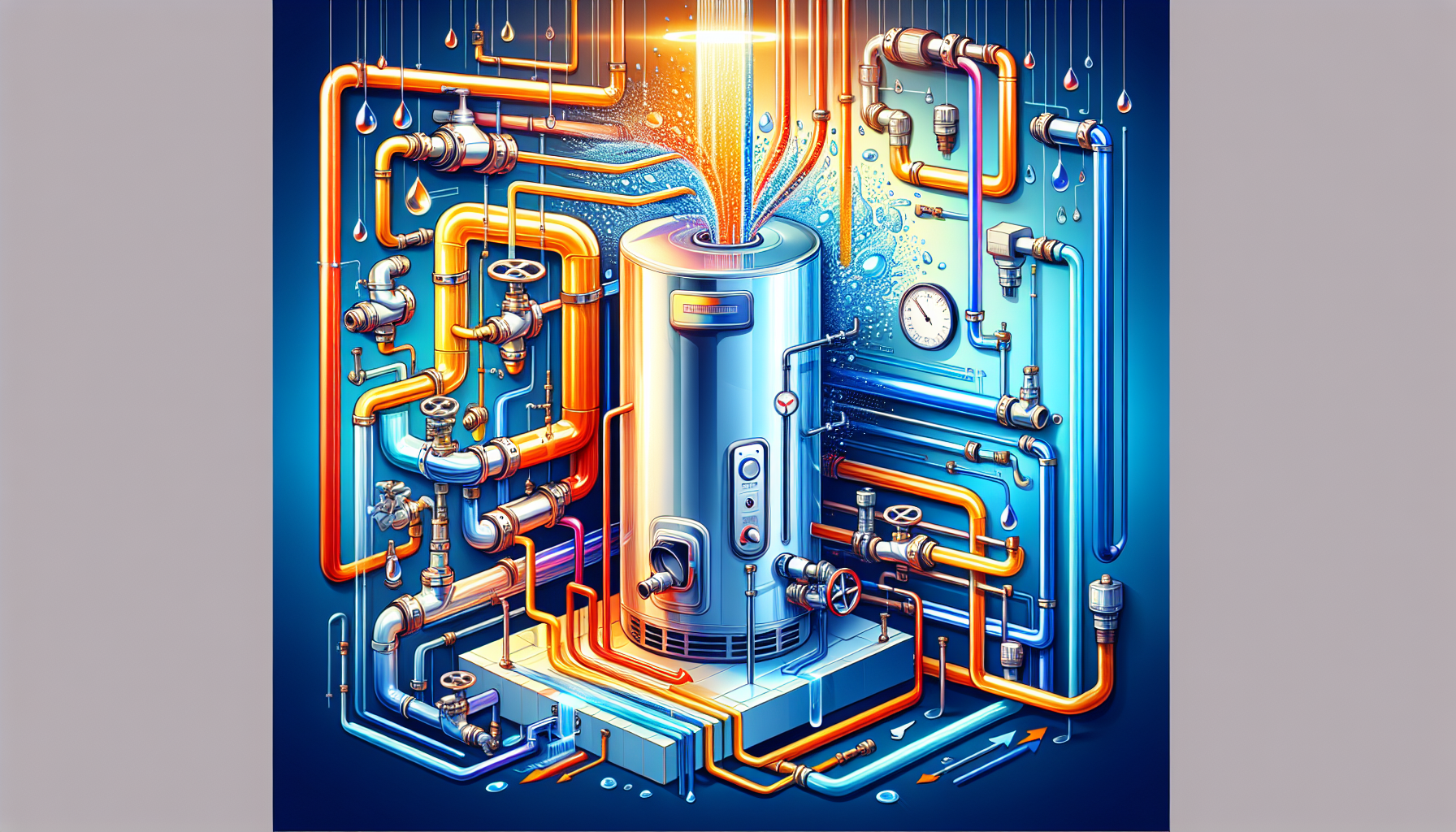
Continuous hot water systems transform hot water access by delivering an on-demand supply, removing the need for a storage tank. Unlike traditional tanks that heat and store water, these instantaneous hot water systems heat water only when needed, ensuring a constant supply without the energy waste associated with storage.
This ensures immediate access to hot water whenever you turn on the hot water tap.
How Continuous Flow Technology Works
Continuous flow systems use a heat exchanger to quickly heat water as it flows through, avoiding the need for pre-heated storage. A gas burner heats the exchanger, which in turn warms the water efficiently as it passes through the system.
This technology provides hot water on demand, offering an efficient and space-saving solution without a hot water heater storage tank.
Key Benefits of Continuous Hot Water
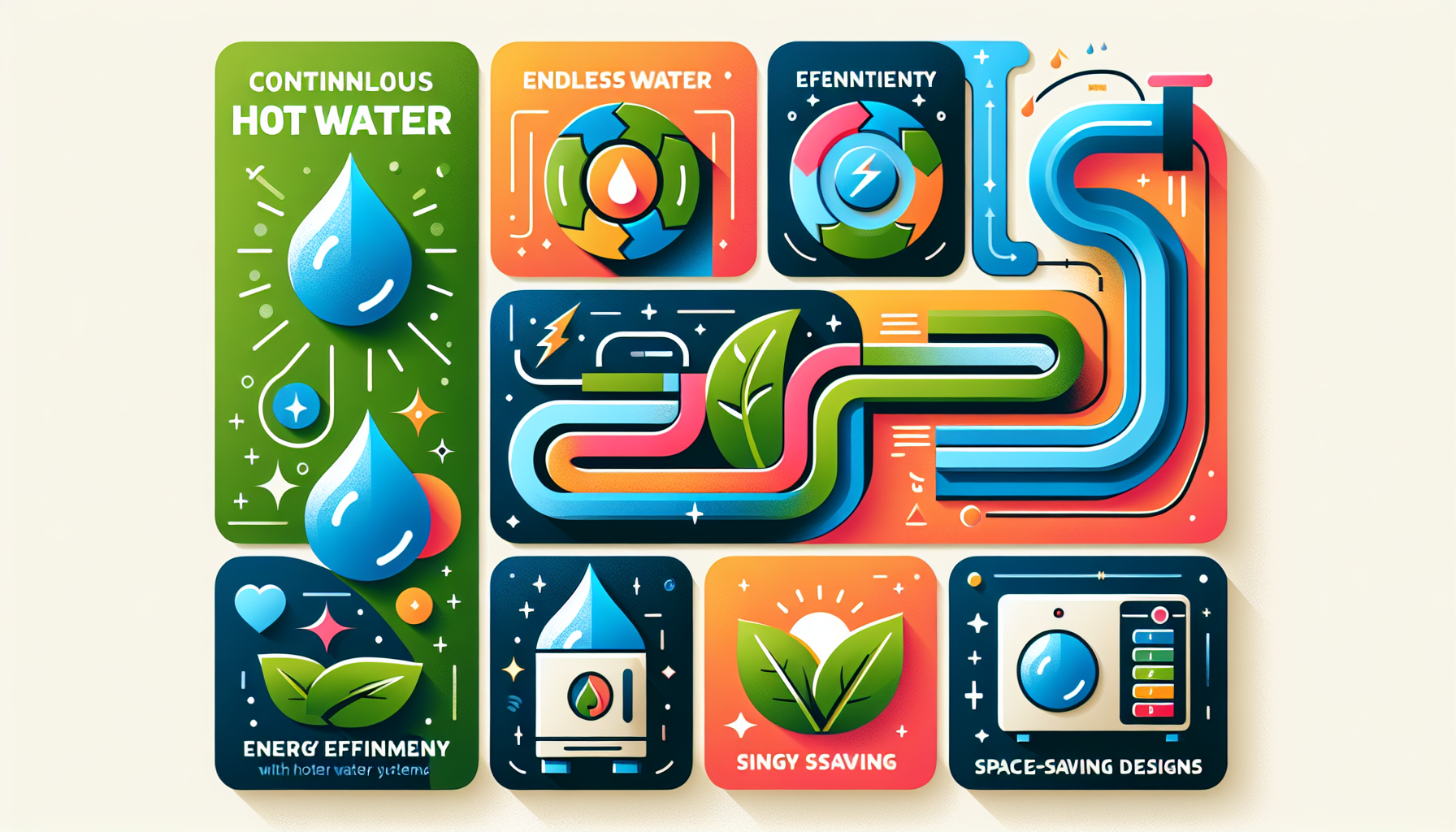
There are numerous benefits to using continuous flow hot water systems. They are highly energy-efficient, resulting in substantial savings on utility bills over time. They easily meet peak demand, offering a minimum flow rate of 20 liters per minute, ideal for households with high hot water usage.
Additionally, these systems are compact, allowing for efficient use of space compared to traditional water tanks. This feature makes them perfect for modern homes aiming to maximize space and efficiency.
Types of Continuous Hot Water Systems
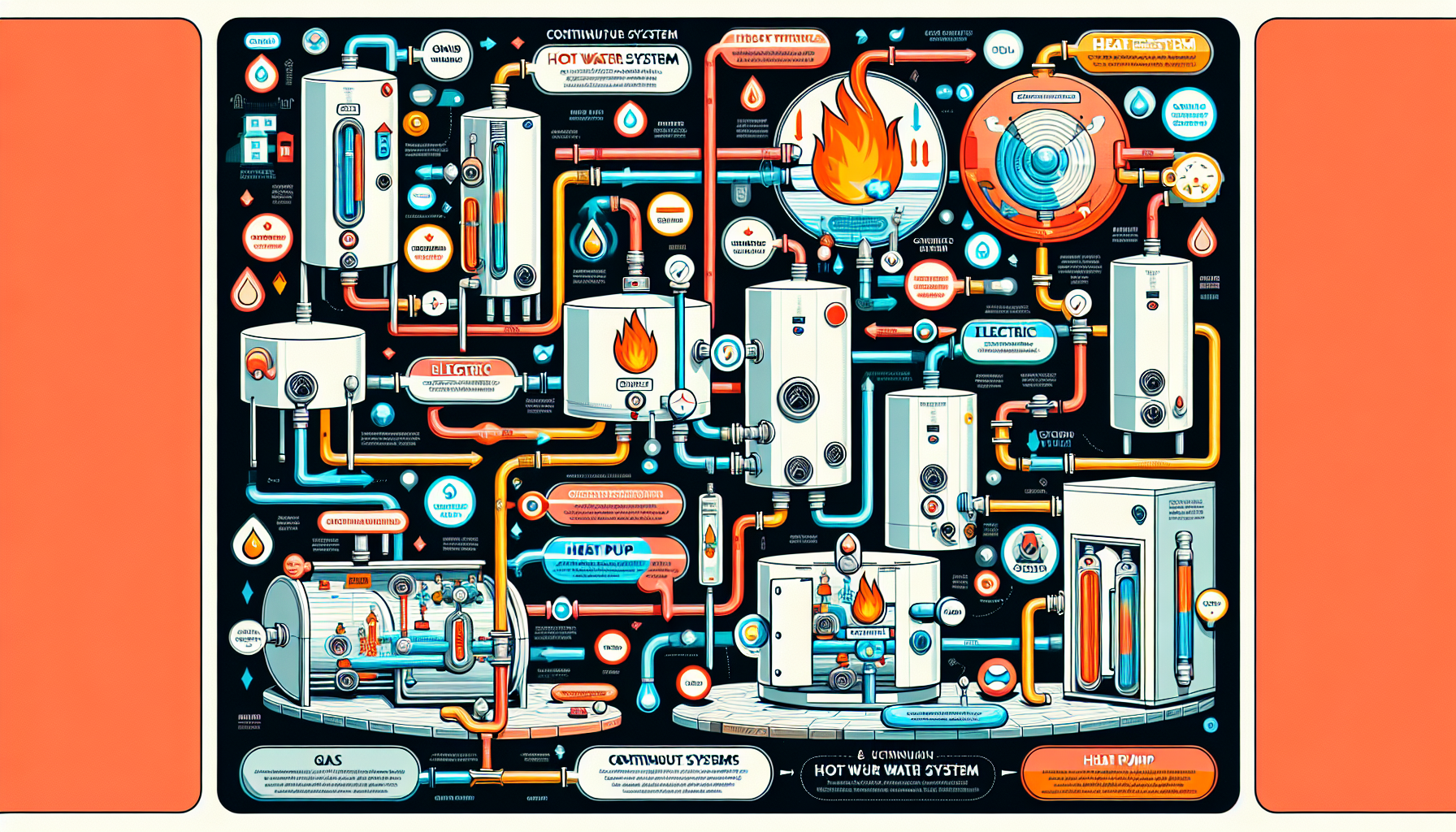
Continuous hot water systems come in several types, including natural gas, electric, and solar-boosted models, each catering to different energy preferences. A gas hot water system is efficient and cost-effective, offering faster heating compared to electric systems.
Electric systems are versatile and suitable for homes without gas lines. Solar-boosted systems use solar energy to improve heating efficiency, making them a sustainable option for eco-conscious consumers.
Choosing the Right Continuous Hot Water System
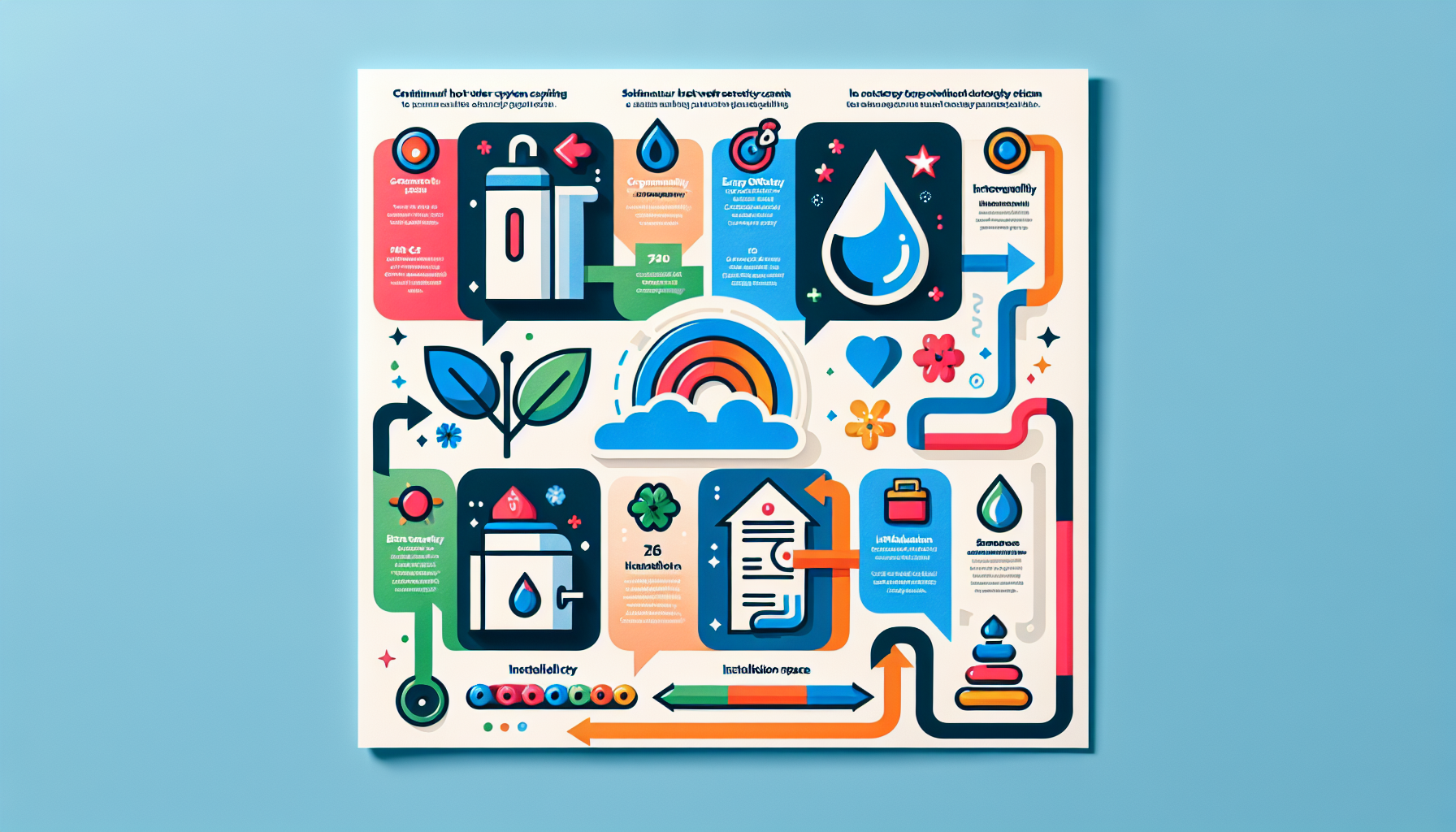
Choosing the right continuous hot water system involves considering several factors. Household size and water usage patterns are key to making an informed decision. Local regulations and codes must also be considered before installation begins.
These guidelines will help you choose the best system for your home.
Factors to Consider
The size of the household and number of occupants greatly influence the choice of a continuous hot water system. More users typically require a higher flow rate. Energy consumption and running costs vary significantly based on household hot water usage patterns.
Local climate conditions and existing infrastructure, including plumbing compatibility, are also crucial factors.
Comparing Brands and Models
Energy efficiency ratings are a key consideration when comparing brands and models. These systems generally use less energy than traditional ones, resulting in lower energy bills and reduced greenhouse gas emissions. Brands like Rinnai, Rheem, and Dux are recognized for their reliable and energy-efficient systems.
Reviews often commend the Rinnai B-Series for its affordability and performance in the market.
Sizing Your System
Accurately sizing your system is essential to meet household demands. Evaluating household size and usage patterns helps determine the correct system size.
Calculate flow rate requirements by considering the simultaneous demands of fixtures like kitchen sinks, showers, and laundry. A typical system should deliver at least 6 to 8 liters per minute per outlet to meet average household demands effectively.
Cost Analysis: Investment and Savings
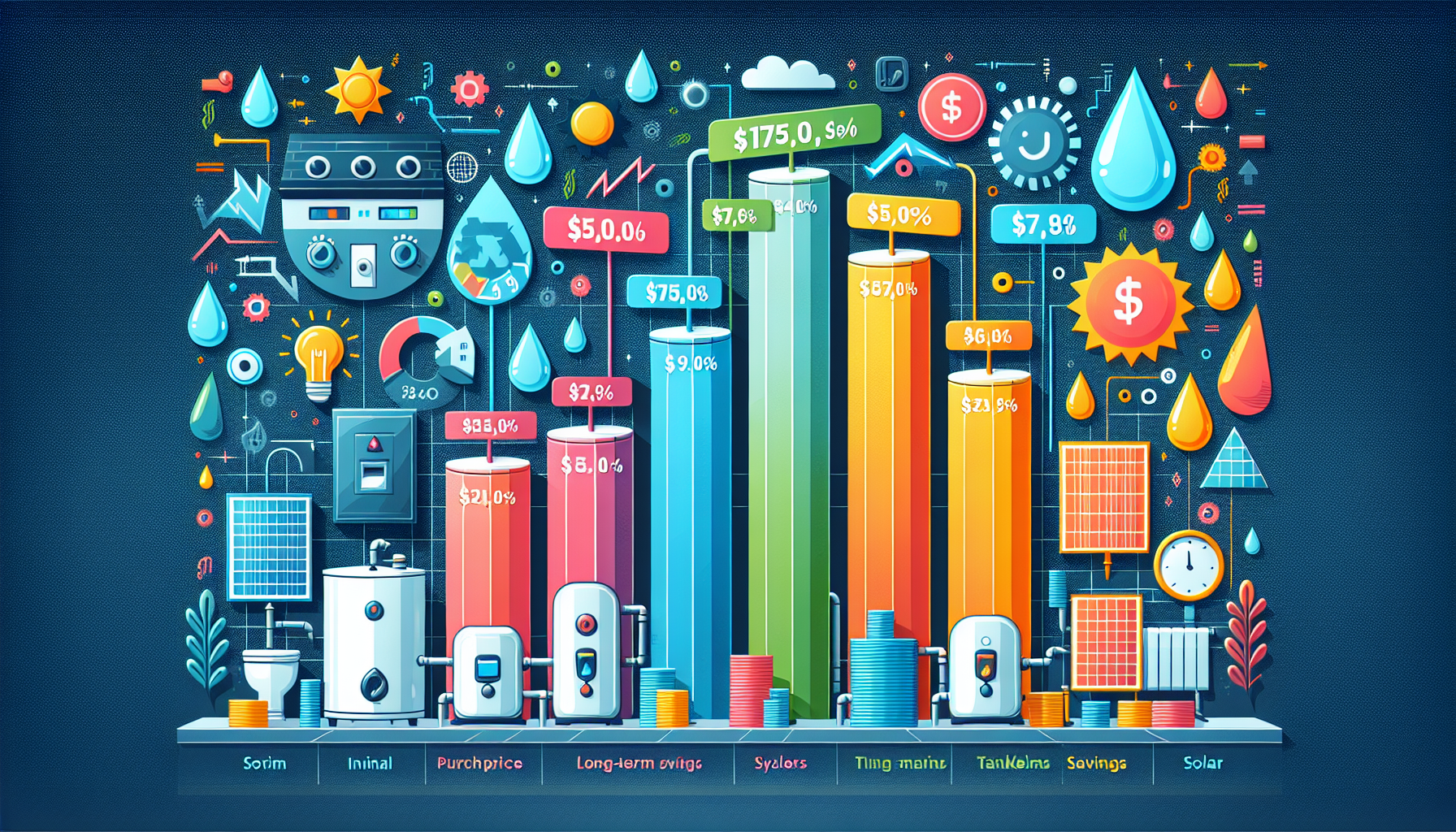
While investing in a continuous hot water system involves an initial cost, the long-term savings on energy bills can be substantial. Although initially more expensive than traditional systems, their energy efficiency results in lower utility bills over time.
This guide will help you understand the cost implications and potential savings of switching.
Initial Purchase and Installation Costs
Initial costs vary based on the brand and setup requirements. Installation costs typically range from $3,000 to $7,000, depending on the model and features.
Factor in both the unit price and installation fees to calculate the total initial investment.
Long-Term Energy Savings
Continuous flow systems are more energy-efficient than traditional tanks, as they only heat water when needed, reducing energy waste. A continuous flow system can result in significant cost savings due to reduced energy consumption. Users may experience energy bill reductions of 30% to 50% due to the efficient operation.
Over time, these savings can offset the initial investment, lowering utility bills.
Financial Assistance Options
Various rebates and financing options can ease the upfront costs of installation. These financial assistance options can significantly lower the barrier to entry for homeowners.
These options help make the transition more affordable and manageable.
Installation Process: What to Expect
Knowing the installation process helps homeowners prepare and ensures a smooth transition. The process involves several stages: home preparation, professional installation, and post-installation checks.
This guide provides a detailed overview of each stage of the installation.
Preparing Your Home for Installation
Preparing your home is crucial for a successful installation. Select a well-ventilated location with enough space for maintenance. Clear ventilation around gas-powered systems ensures efficient operation and safety.
Sufficient space near the installation site allows the technician to work efficiently and safely.
Professional Installation Steps
Professional installation includes several critical steps to ensure safe and efficient operation. After installation, check all connections and valves for leaks. A pressure test is standard to ensure there are no leaks in the system.
Conduct safety checks and verify that the system heats water to the desired temperature efficiently.
Post-Installation Checklist
Ensure the system is installed per manufacturer specifications and local plumbing codes. Verify that all necessary connections, such as gas or electrical supply, are secure. Inspect for gas leaks and ensure the pressure relief valve is properly installed and functioning.
Turn on a faucet to test the hot water output and confirm a consistent flow. Adjust the temperature settings on the unit if necessary to ensure user satisfaction.
Maintenance and Longevity
Regular maintenance is vital for the efficiency and durability of these systems. Efficient operation can prolong the system’s lifespan and reduce utility bills.
This guide covers routine maintenance tasks, troubleshooting common issues, and tips for extending the system’s lifespan.
Routine Maintenance Tasks
Routine maintenance is essential for keeping your system in top condition. Periodically flushing the system removes sediment build-up that can affect performance. Regularly inspecting for leaks ensures efficient operation and prevents water wastage.
Scheduled inspections can identify potential problems before they become major repairs.
Troubleshooting Common Issues
Sporadic temperature fluctuations can result from an inadequate gas supply or a faulty thermostat. Such fluctuations may also indicate a need to inspect the heating elements or burners.
Promptly addressing these issues can greatly enhance user comfort and system performance.
Extending System Lifespan
Timely repairs can significantly extend the longevity of your hot water system. Proper ventilation for gas systems can prolong their operational life.
Regular maintenance and prompt repairs are crucial for extending the system’s lifespan.
Upgrading from Traditional Systems
Switching from traditional to continuous flow systems offers numerous benefits, including improved energy efficiency and space savings. Government programs and incentives often provide rebates and low-interest financing for energy-efficient hot water systems.
This guide covers the benefits and steps of upgrading.
Transitioning Smoothly
Transitioning requires thorough preparation to ensure compatibility and efficiency. Preparation includes assessing space requirements, ensuring proper ventilation, and checking existing plumbing infrastructure.
Upgrading provides endless hot water and enhances energy efficiency, leading to long-term cost savings.
Enhanced Energy Efficiency
Switching from traditional storage tanks to continuous hot water systems offers benefits like energy efficiency and an endless hot water supply. Continuous flow systems heat water on demand, eliminating heat loss associated with traditional tanks, making them more energy-efficient.
Continuous hot water systems often have better energy ratings than traditional ones, resulting in lower environmental impact.
JR Gas & Water: Your Local Experts
Operating since 1985, JR Gas & Water offers comprehensive plumbing, gasfitting, and hot water solutions, including repairs and installations. Their services cover a broad range of needs, ensuring effective hot water solutions tailored to each client.
Known for quality workmanship and customer service, JR Gas & Water is a reliable choice for continuous hot water system needs.
Comprehensive Services
JR Gas & Water offers comprehensive plumbing, gasfitting, and hot water solutions, including repairs and installations. Their services cover a broad range of needs, ensuring effective hot water solutions tailored to each client.
As a reliable gasfitting and plumbing professional in South East Queensland, JR Gas & Water is known for quality workmanship and customer service.
Customer Satisfaction and Community Involvement
JR Gas & Water has built a solid reputation for exceptional customer experiences, quality workmanship, and lasting solutions. The team possesses decades of combined experience and in-depth knowledge of plumbing, gasfitting, and hot water systems, contributing to high-quality service.
They also contribute to the local community by supporting local businesses and organizations, showcasing their commitment to community involvement.
Emergency Services
JR Gas & Water offers emergency services to quickly respond to urgent hot water system issues. These services are essential for addressing urgent problems that can disrupt daily life, ensuring that your hot water needs are met promptly and efficiently.
With their 24/7 availability, you can rely on JR Gas & Water to handle any hot water emergencies with professionalism and expertise.
Summary
In summary, continuous hot water systems provide an efficient, on-demand supply of hot water, eliminating the need for storage tanks and reducing energy waste. They offer numerous benefits, including significant cost savings, space efficiency, and the ability to meet high hot water demands. Choosing the right system involves understanding your household needs, comparing brands and models, and sizing the system appropriately. While the initial investment may be higher, the long-term savings and potential financial assistance options make continuous hot water systems a worthwhile upgrade. With proper maintenance, these systems can provide reliable service for many years. JR Gas & Water stands out as a trusted provider of comprehensive hot water solutions, ensuring customer satisfaction and community involvement. We hope this guide has provided valuable insights and inspires you to consider upgrading to a continuous hot water system for your home.
Frequently Asked Questions
How long do hot water systems last?
Hot water systems typically last between 8 to 20 years, depending on the type and maintenance. Continuous flow gas systems can last 15 to 20 years, while electric systems usually last 8 to 12 years.
What are the main benefits of continuous hot water systems?
Continuous hot water systems offer on-demand hot water and are highly energy-efficient, which can result in significant cost savings. Their compact design allows them to meet high hot water demands without the need for a storage tank.
How does a continuous flow technology work?
Continuous flow technology operates by rapidly heating water as it flows through a heat exchanger, providing hot water on demand without the need for a storage tank. This system ensures increased efficiency and reduces energy waste.
What factors should I consider when choosing a continuous hot water system?
When choosing a continuous hot water system, it is essential to consider household size, hot water usage patterns, local climate conditions, and existing infrastructure. Furthermore, evaluate energy efficiency ratings and customer reviews to make an informed decision.
Are continuous hot water systems more expensive to install?
Continuous hot water systems are generally more expensive to install initially, with costs ranging from $3,000 to $7,000, but they can lead to long-term energy savings.

























